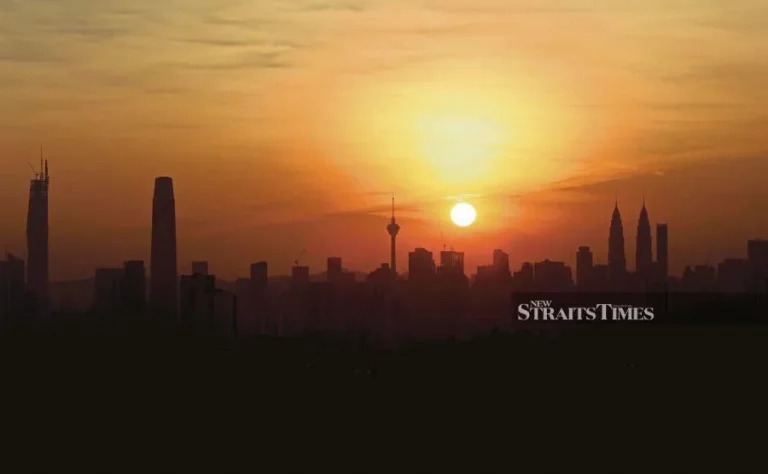2025 is four years away. Certainly, there is so much progress that Malaysia has achieved in recent years that we can be proud of in upholding the principle of “leaving no one behind”.
Plus, it is making sure the Shared Prosperity Vision (SPV) and Sustainable Development Goals (SDGs) become relevant and are known to the people.
All these efforts reflect the government’s aim to eradicate hardcore poverty by 2025 by focusing on the 2.9 million B40 households as stated in the 12th Malaysia Plan.
SPV, an approach taken by the government to localise SDGs as set by the United Nations and adopted by all, will ensure an inclusive and sustainable growth, along with fair and equitable distribution across all levels by 2030. This includes alleviating poverty and reducing socio-economic gaps by implementing more bottom-up approaches and targeted programmes. This cannot be achieved without commitment, understanding and literacy of the local sustainability issues faced by societies, as highlighted in the SPV.
Sustainability literacy is all about demonstrating one’s awareness of sustainability and its complex relationships in the economy, environment and society. It is about possessing the necessary information, knowledge, skills and mindsets that allow individuals to commit, formulate and communicate sustainable solutions vis-à-vis economy, social or environment matters through multidisciplinary approaches.
The impact of every sustainability policy plan is always the heaviest on the poor. Malaysia’s Prihatin stimulus packages and the National Recovery Plan serve as the exit strategies from the Covid-19 crisis and in addressing inequalities, as well as keeping the cost of living under control.
According to the Sustainable Development Report 2021 published recently, Malaysia ranked 65 out of 165 countries with an SDG Index at 70.9 per cent. The government, during Tan Sri Muhyiddin Yassin’ administration, succeeded in achieving one of 17 goals set by the world body, namely SDG1 (to end poverty in all its forms everywhere).
Malaysia is on track to achieve three other goals — affordable and clean energy (SDG7), decent work and economic growth (SDG8) and industry, innovation and infrastructure growth (SDG9).
We achieved a moderate score in five goals — good health and wellbeing (SDG3), gender equality (SDG5), clean water and sanitation (SDG6), sustainable cities and communities (SDG11), and peace, justice and strong institutions (SDG16).
We did moderately well in these areas, but not enough to attain the goals. Four other goals saw a stagnating score — quality education (SDG4), climate action (SDG13), life below water (SDG14) and partnerships for the goals (SDG17).
Another goal saw a decreasing score — life on land (SDG15) — while two more goals have no data available for analysis, namely reduced inequalities (SDG10), and responsible consumption and production (SDG12).
Malaysia’s Spillover Index stood at 77.8 per cent. The SDG Index measures a country’s total progress towards achieving all 17 SDGs. The score can be interpreted as a percentage of SDG achievement (a score of 100 indicates that all SDGs have been achieved).
The Spillover Index, however, assesses spillovers along environmental and social impacts as embodied in trade, economy, and finance and security. A higher score means that a country scores more positive and fewer negative spillover effects.
The RM530 billion worth of Prihatin stimulus, unveiled in March last year, provided immediate aid to ease the burden of all, especially the poor and those badly affected by the pandemic.
Addressing these crises clearly requires a shared focus and strategies such as ending extreme poverty in all its forms and sustainability literacy, as well as engagement among the stakeholders, who need to formulate more robust solutions and policy directions for Malaysia.
Through various approaches and strategies implemented by the National Recovery Council, such as collaboration with independent think tank, Institut Masa Depan Malaysia and Institute of Poverty Research and Management on addressing poverty issues and inequalities, for example, the government, civil societies and policymakers can identify the areas of improvement and sustainability issues faced by societies.
Through continuous engagements, dialogues and consultations, guided by the spirit of Keluarga Malaysia, and SDG and SPV’s shared missions of leaving no one behind, we will be able to identify gaps and challenges, increase literacy on sustainability issues, develop more comprehensive analysis of our major achievements, and restructure our development priorities towards a better and stronger nation as envisioned.
The writer is Research Analyst (Social) at Institut Masa Depan Malaysia
The views expressed in this article are the author’s own and do not necessarily reflect those of the New Straits Times
Date: 30 October 2021
Source: New Straits Times – https://www.nst.com.my/opinion/columnists/2021/10/741121/
Image from: https://assets.nst.com.my/images/articles/28hm15zb_1635523215.jpg
